Principles in Business Law: Arbitration Clause and Agreement
VerifiedAdded on 2022/09/14
|6
|1046
|17
Homework Assignment
AI Summary
This assignment delves into the intricacies of arbitration clauses and agreements within the realm of business law. It begins by defining the arbitration clause as a contractual provision that outlines the rights and obligations of parties in the event of a legal dispute, emphasizing its role in resolving conflicts outside of civil court through a third-party arbitrator. The analysis covers essential elements of a well-drafted arbitration clause, including the identification of affected parties, effective dates, potential modifications, and consequences of breach. The assignment differentiates between arbitration and civil action, highlighting arbitration's flexibility in negotiating compensation. Furthermore, it outlines the purpose of an arbitration agreement, which is to create a framework for settling disputes without court intervention and discusses the elements that should be included in an arbitration agreement. The document also explores the use of model arbitration clauses provided by arbitral institutions and the importance of customizing these clauses to suit specific contractual needs. It mentions the London Court of International Arbitration (LCIA) as a source of model clauses and identifies key decisions parties must make when adopting a model clause, such as selecting the number of arbitrators, the seat of arbitration, and the governing law of the contract. The assignment concludes by referencing relevant legal literature on arbitration and commercial law.
1 out of 6
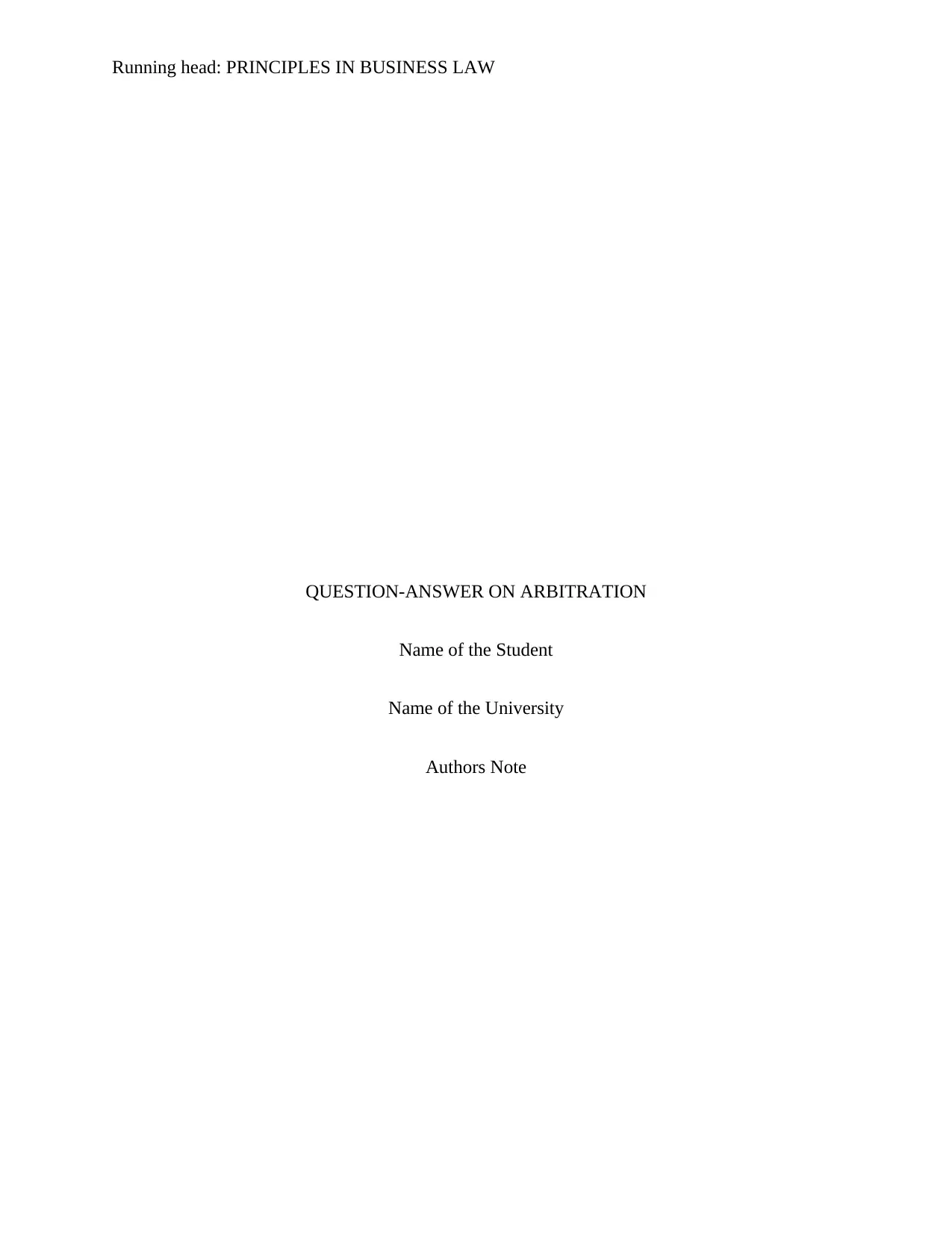
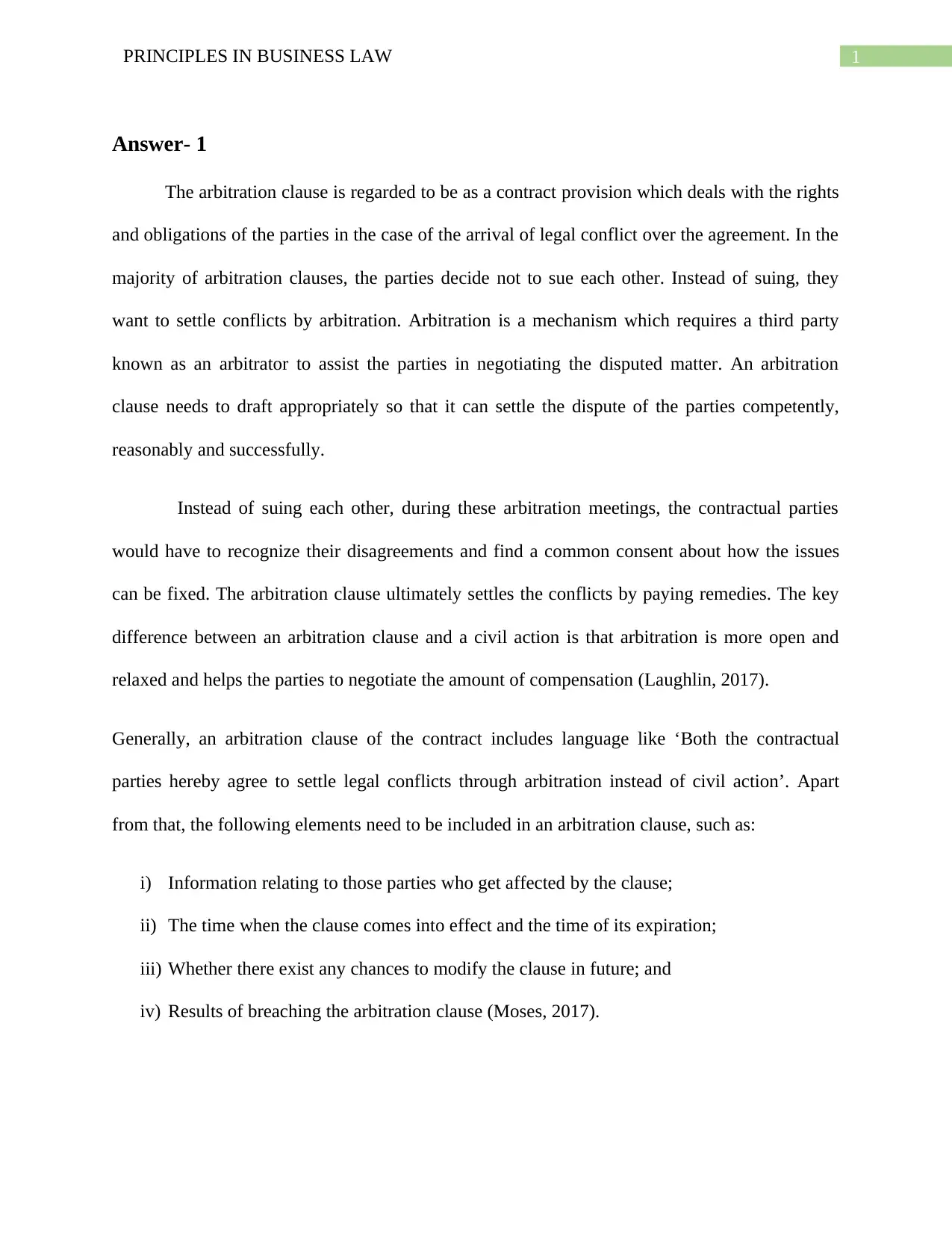
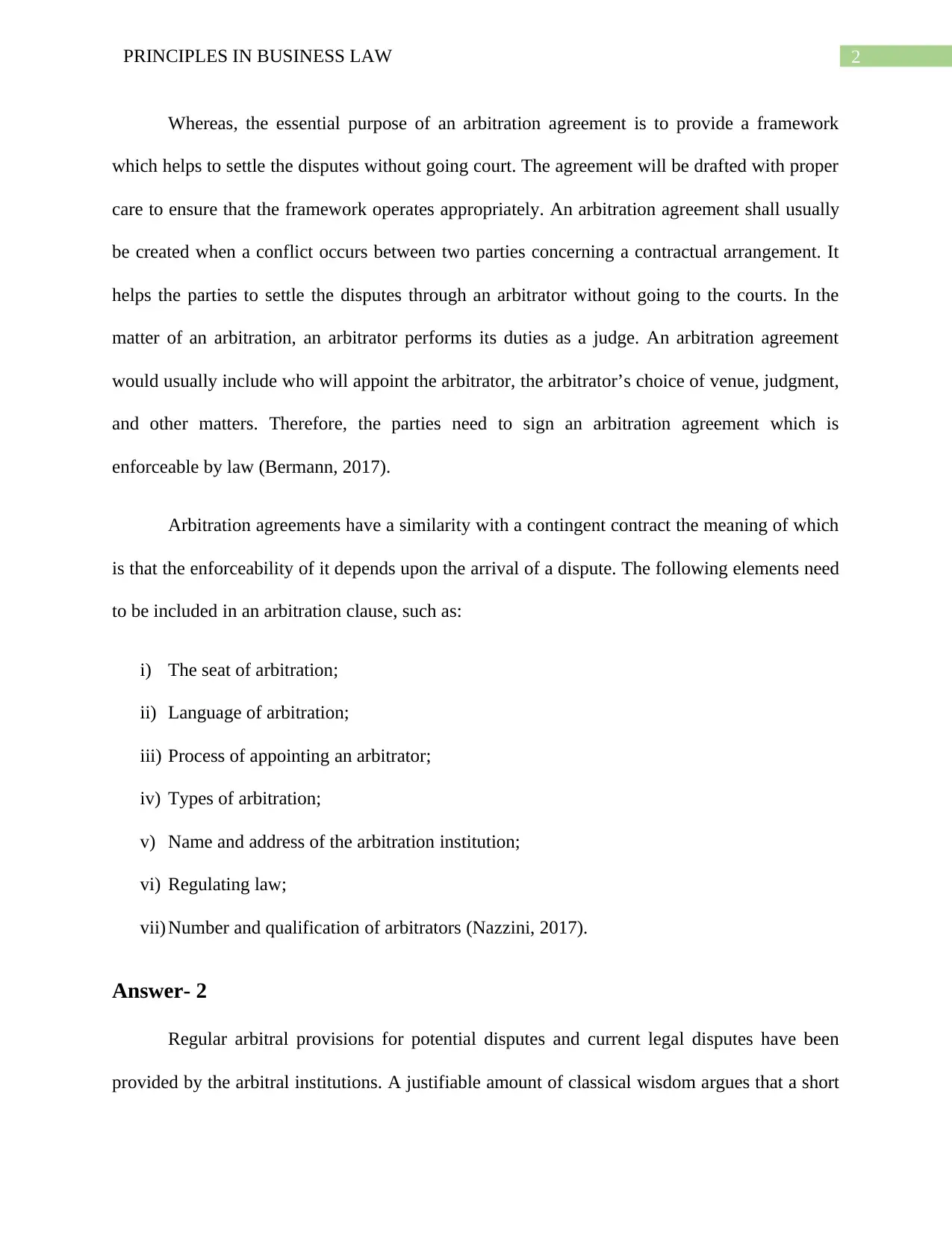

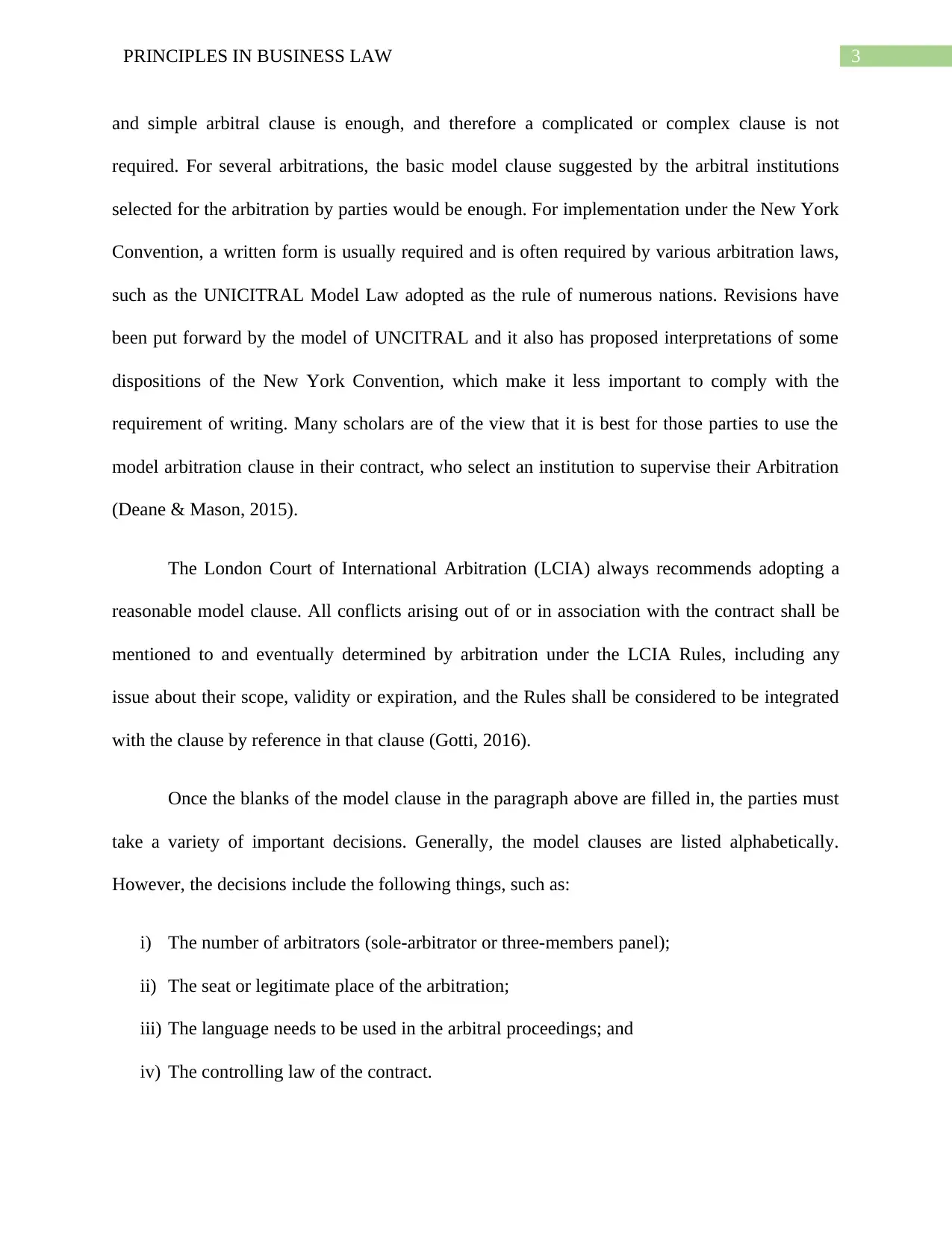

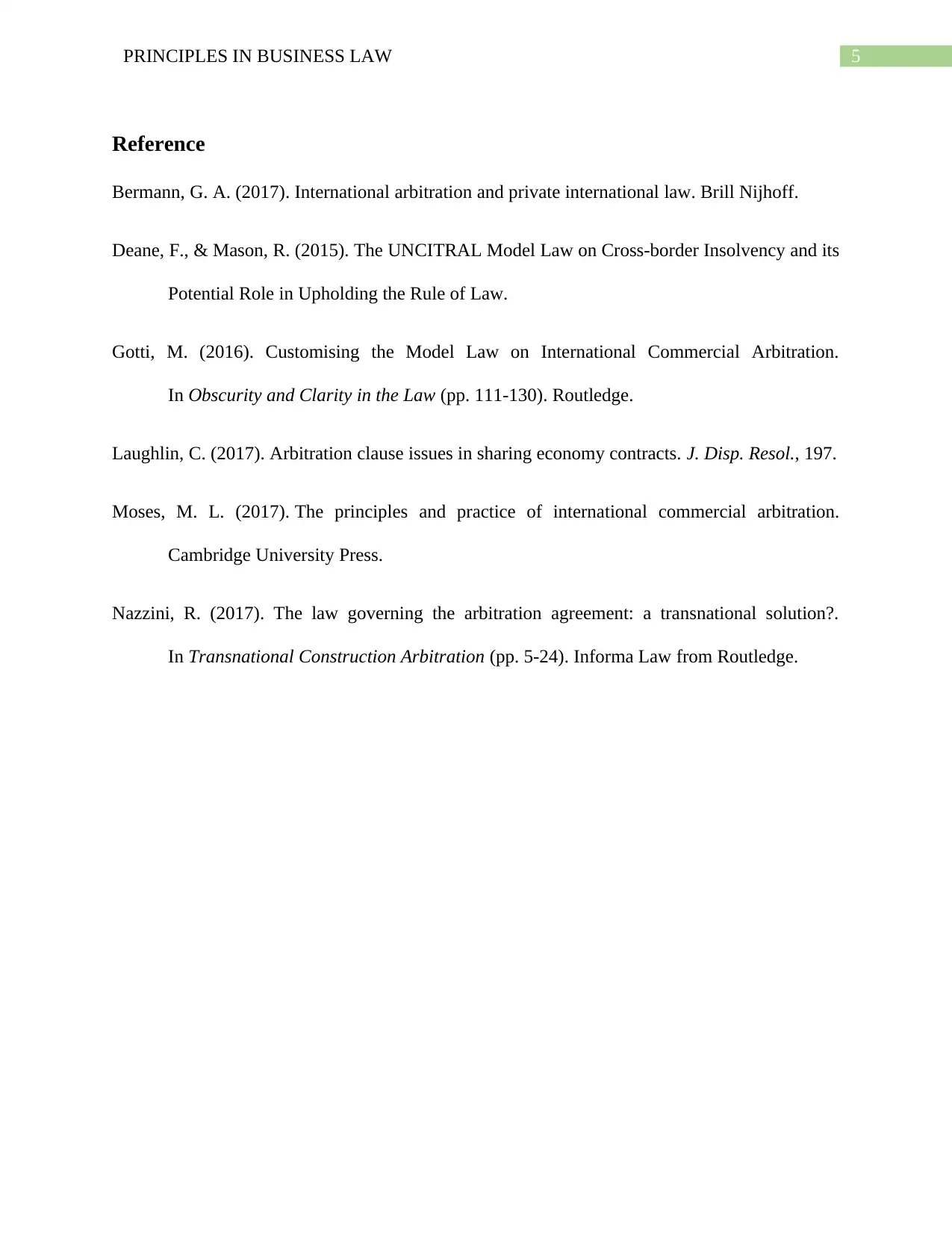





![[object Object]](/_next/static/media/star-bottom.7253800d.svg)